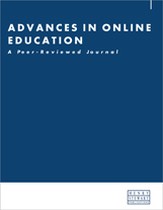Supporting neurodiversity using mainstream mobile technologies: A proposed fourth-generation model
Abstract
This paper takes a philosophical approach to examining the use of mobile technologies to support Students Who Are Neurodiverse (SWANs). The paper is relevant as it addresses issues of social justice for students with disabilities and special needs. Methodologically, the paper uses the epistemological model of disability and a framework of active and passive exclusion to critically examine the nature of neurodiversity, the history of the development of accessible, assistive and inclusive technologies for SWANs and the management strategies of supporting SWANs using different forms of technology in different learning contexts. The focus of this analysis is an examination of mainstream mobile technologies and apps, and the support of people with disabilities. The study is framed by two research questions: 1) How has technology attempted to support SWANs based on their individual learning needs? and 2) Has the process of developing technologies for SWANs led to an efficient process of inclusion? The paper finishes by proposing a new model of technology usage and practice termed the Culture, Individuality, Multi-modality and Portability (CIMPo) model, which it suggests represents a fourth generation of accessible and inclusive technology and a second generation of inclusion. The key conclusion from this paper is that neurodiversity is often overlooked in education and that the culture of support using technology is burdened by its history of exclusion; however, systematised management strategies using mainstream technologies can often address many historical issues and the hurdles presented during teaching and learning.
The full article is available to subscribers to this journal (subscription is free).
Author's Biography
Simon Hayhoe Simon is a Reader in Education at the University of Bath. He is also a Centre Associate in the Centre for the Philosophy of Natural and Social Science, London School of Economics, an Associate of the Scottish Sensory Centre, University of Edinburgh and until 2021 was a temporary adviser to the World Health Organization. Simon’s most significant project investigated the use of mobile technologies as tools of inclusion for adults with disabilities, which was sponsored by a Horizon 2020 grant from the European Union (2016–20). The project was led by VRVis (based in Vienna) and its partners included the Open University, national museums in London, Madrid and Vienna and technology companies in Vienna and Belgrade. Simon previously conducted research projects in the US, Canada, United Arab Emirates and the UK, and he is currently co-editor of the Routledge book series, Qualitative and Visual Methodologies in Educational Research. Simon has also won several awards and fellowships, including a Fulbright All Disciplines Scholar’s Award and fellowships of the British Computer Society and the Metropolitan Museum of Art (New York, USA), and delivered keynotes and guest lectures for the Royal National Institute of Blind People, University College London, MAXXI (Rome) the Sidur Museum (Moscow), Manege Central Exhibition Hall (St Petersburg), the Metropolitan Museum of Art (New York), the Institute of Child Health at Great Ormond Street Hospital, Harvard University, London School of Economics, MIT, University of California Berkeley, among others.
Citation
Hayhoe, Simon (2022, September 1). Supporting neurodiversity using mainstream mobile technologies: A proposed fourth-generation model. In the Advances in Online Education: A Peer-Reviewed Journal, Volume 1, Issue 1. https://doi.org/10.69554/EESV8438.Publications LLP
